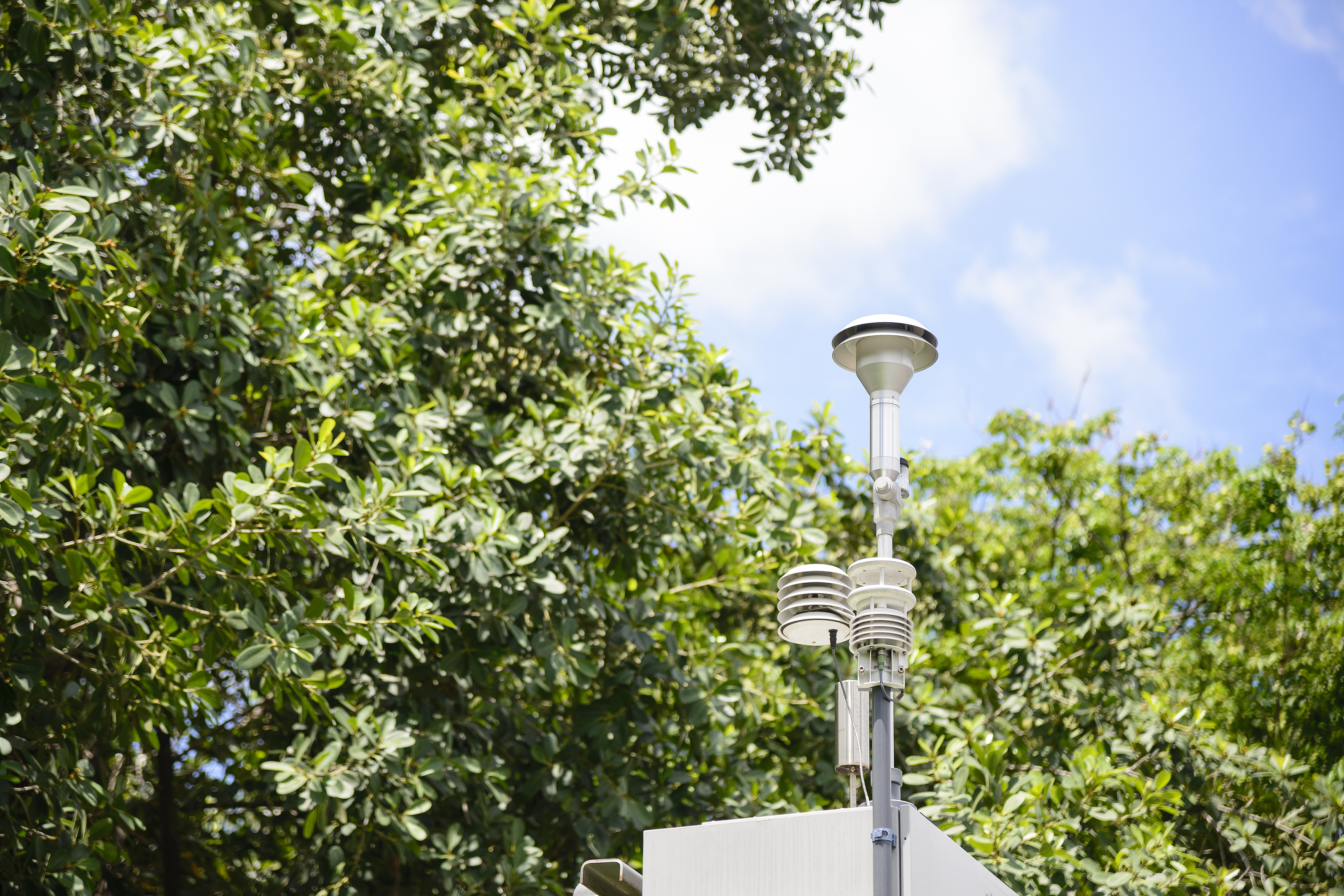The Hague University of Applied Sciences contributes to air quality research
5 December 2024
The Hague University of Applied Sciences collaborates with a broad consortium on the ExpACT research project, called Exposome ACTion perspectives, which has recently received an NWA-ORC grant.

The Hague University of Applied Sciences collaborates with a broad consortium on the ExpACT research project, called Exposome ACTion perspectives, which has recently received an NWA-ORC grant. The project focuses on developing strategies to reduce exposure to airborne pollutants. To this end, we not only deploy innovative technology, but also promote open dialogue between various stakeholders to arrive at broadly supported solutions.
Air pollution as a major health risk
Almost everywhere in the Netherlands, we are breathing unhealthy air. Air pollution is one of the biggest causes of disease in the Netherlands and about as big a risk factor as obesity. Major transitions are taking place in sectors such as mobility, energy and agriculture. Think of the transition to electric driving, phasing out fossil fuels and wood-burning stoves, and making industry cleaner. But it also leads to heated discussions between official authorities, businesses and residents.
Need for improved measurement methods
There is a clear need for better technological measurement methods. At the same time, it is becoming increasingly important to involve stakeholders in both the collection and the analysis of air quality data. The ExpACT research project plays into this. The Smart Sensor Systems research group, part of the Centre of Expertise Digital Operations & Finance, contributes to this project by developing innovative measurement methods for measuring air quality and the 'exposome' (the total exposure to environmental factors). John Bolte (professor of Smart Sensor Systems) explains:
"We use a specially designed sensor vest to measure exposure to airborne pollutants. We also use AI and machine learning technologies to improve the accuracy of affordable sensors”.
Emission sources
The ExpACT project focuses on tackling the main sources of air pollution. We are working on four specific themes:
- Industry – for example, the emission of particulate matter and PFAS.
- Workplaces – such as the emission of organic substances and biological agents.
- Agriculture - such as nitrogen and pesticide emissions.
- Urban environment - e.g. pollution from microplastics and chemicals.
For each theme, we create a living lab: a practice-oriented test environment where public and private partners collaborate to develop and test technologies that improve air quality. In these labs we also develop strategies to collaborate with various stakeholders to deliver solutions that are broadly supported.
About the project
The ExpACT project started in May 2025 and receives EUR 6.7 million in funding from the Dutch research Agenda on Routes by Consortia(NWA-ORC). The consortium, led by Prof Dr Roel Vermeulen of Utrecht University, consists of the following partners: AIREAS, ArboUnie, Barcelona Institute for Global Health, Cosanta B.V., Cosine, The Hague University of Applied Sciences, De War, Municipality of Nijmegen, Municipality of Utrecht, Rotterdam University of Applied Sciences, Netherlands eScience Center (NLeSC), NEVEDI, Environmental Service Arnhem region, Environmental Service Nijmegen region, Province of North Holland, Province of Utrecht; Data and Knowledge Hub Healthy Urban Living, Radboud University Nijmegen, RECETOX Centre, Masaryk University, Regiodeal Gelderse Vallei, National Institute for Public Health and the Environment (RIVM), Royal Netherlands Meteorological Institute, Netherlands Knowledge Centre Labour and Lung Disease Association, Technical University of Delft, TNO, Top Institute Comprehensive Analytical Sciences, UMC Utrecht, Leiden University, Utrecht University, Waag | technology & society.
Centre of Expertise Digital Operations & Finance
The researchers at the Centre of Expertise Digital Operations & Finance make use of digital technology to create a virtuous economy. For us, that means an economy with a small ecological footprint. An economy ensuring a future that is inclusive, sustainable and resilient.
More information
- More information about the ExpACT research project.
- Or please contact John Bolte.
- For more information about our practice-oriented research, please follow us on LinkedIn.